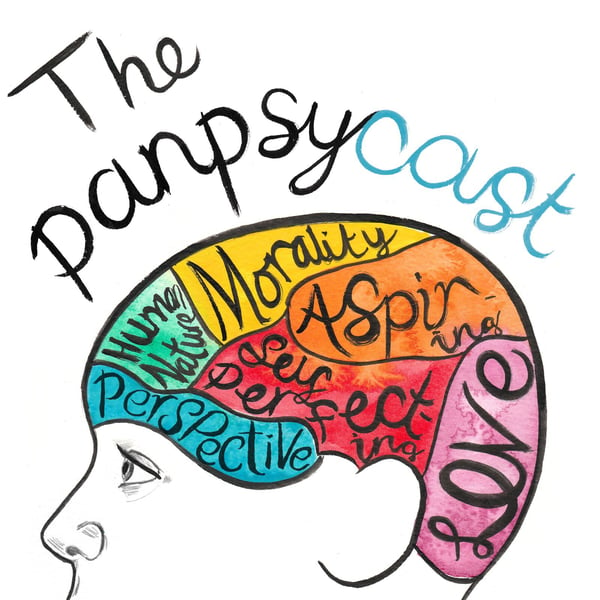Episode 146, The Philosophy of Comedy (Part II - The Ethics of Humour)
The Panpsycast Philosophy Podcast
Jack Symes | Andrew Horton, Oliver Marley, and Rose de Castellane
4.8 • 604 Ratings
🗓️ 24 August 2025
⏱️ 38 minutes
🧾️ Download transcript
Summary
In 2021, Netflix released His Dark Material, a Christmas stand-up special by Irish–British comedian Jimmy Carr. The show sparked international outrage. Toward the end of the set, Carr delivered what he called a ‘career ender’ – a joke about the Holocaust, in which he described the Nazis’ murder of thousands of ‘Gypsies’ as a ‘positive’.
The Holocaust Memorial Day Trust, the Auschwitz Memorial, and the UK government condemned the joke as ‘appalling’, ‘abhorrent’, and ‘racist’; Carr, critics said, was trading on the ‘last acceptable form of racism’.
Comedy touches every part of our lives. We tell jokes at the pub, around the dinner table, and by the office coffee machine. We all know someone who makes us laugh – and someone who seems to take things too far. But is there a line when it comes to humour? And if there is, who gets to draw it? Should we suspend our moral judgements when the lights go down and the curtain goes up? Or do jokes, like most speech acts, carry moral weight?
To answer these questions, we need to understand the nature of comedy itself – what exactly it is we’re responding to when we laugh. Humour might be a release of nervous tension, a playful disruption of expectations, or – more troublingly, if it applies to Carr’s joke – a means of asserting social superiority. No doubt, comedy has the power to shape our culture and perceptions. But, as we’ll find out, it also tells us something about who we are, who we ought to be, and the things we value most.
Links
Abrahams, Daniel – Winning Over the Audience: Trust and Humor in Stand‐Up Comedy (paper)
Anderson, Luvell – Roasting Ethics (paper)
Bergson, Henri – Laughter: An Essay on the Meaning of the Comic (book)
Carroll, Noël – Ethics and Comic Amusement (paper)
Carroll, Noël – Humour: A Very Short Introduction (book)
Carroll, Noël – I’m Only Kidding: On Racist and Ethnic Jokes (paper)
Carroll, Noël – Cruelty and Humour (paper)
Critchley, Simon – On Humour (book)
Deen, Phillip – What Could It Mean to Say That Today’s Stand‐Up Audiences Are Too Sensitive? (paper)
Gimbel, Steven (ed.) – The Philosophy of Comedy (book)
Hick, Darren Hudson – Why Can’t You Take a Joke? The Several Moral Dimensions of Pilfering a Ha‐Ha (paper)
Morreall, John – Comic Relief: A Comprehensive Philosophy of Humor (book)
Morreall, John – Philosophy of Laughter and Humor (book)
Morreall, John – Stanford Encyclopedia of Philosophy: Philosophy of Humor (article)
Smuts, Aaron – Internet Encyclopedia of Philosophy: Comedy (article)
Transcript
Click on a timestamp to play from that location
| 0:00.0 | Pan Pan Pan Pan Pan Pan Pan Pan Pan Pan Pan Pan Pan Pan Pan Pan Pan Pan |
| 0:07.0 | Scicast |
| 0:09.0 | Part 2, the ethics of humour. |
| 0:26.6 | Lots of good comes from humour, social bonds, creating norms, reinforcing them, bringing about social change and building community. |
| 0:34.6 | But sometimes people cross the line. And it's the woke. |
| 0:45.3 | There's outraged culture, right? It is a part of our public conversations. And that's why I think |
| 0:50.3 | why we wanted to fundamentally talk about this topic, or why it's so prominent in our |
| 0:55.1 | public conversations, the comedians, you're receiving death threats, being attacked or not wanting |
| 1:00.7 | to speak on US college campuses, and the comedians accusing audiences of a kind of self-congratulatory |
| 1:09.9 | righteousness that when an immoral joke's told, |
| 1:13.5 | an immorality for all of them doesn't apply to joking, |
| 1:16.3 | they use it as an attempt to just showcase their moral values and their virtues. |
| 1:21.0 | And they're misplaced, says the comedian. |
| 1:23.3 | We began this episode with the introduction of Jimmy Carr's joke about the Holocaust, |
| 1:28.7 | obviously a really sensitive topic included in a stand-up special which was performed to |
| 1:34.1 | thousands of people and released a millions of people on Netflix, not sponsored by them. |
| 1:39.7 | But yeah, give it a little watch if you want some more context. |
| 1:43.1 | The joke in which car delivered, |
| 1:45.0 | he described it as a career ender, he said, when people talk about the Holocaust, they talk |
| 1:49.3 | about the tragedy in horror, six million Jewish lies being lost, but no one ever mentions |
| 1:53.2 | the thousands of gypsies that were killed because no one ever wants to talk about the positives. |
| 1:57.2 | That was the joke met with hordes of laughter, but then lots of various Holocaust trusts and lots of public figures came out |
... |
Transcript will be available on the free plan in 24 days. Upgrade to see the full transcript now.
Disclaimer: The podcast and artwork embedded on this page are from Jack Symes | Andrew Horton, Oliver Marley, and Rose de Castellane, and are the property of its owner and not affiliated with or endorsed by Tapesearch.
Generated transcripts are the property of Jack Symes | Andrew Horton, Oliver Marley, and Rose de Castellane and are distributed freely under the Fair Use doctrine. Transcripts generated by Tapesearch are not guaranteed to be accurate.
Copyright © Tapesearch 2025.

